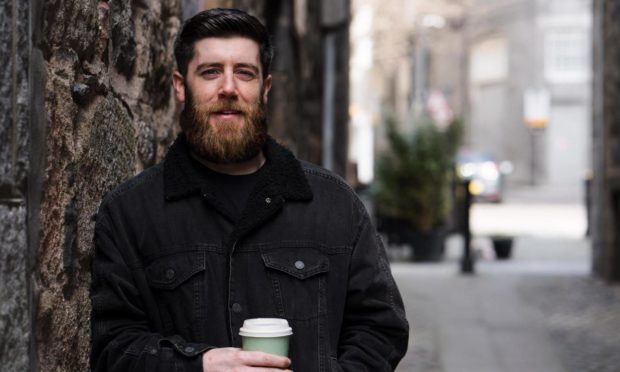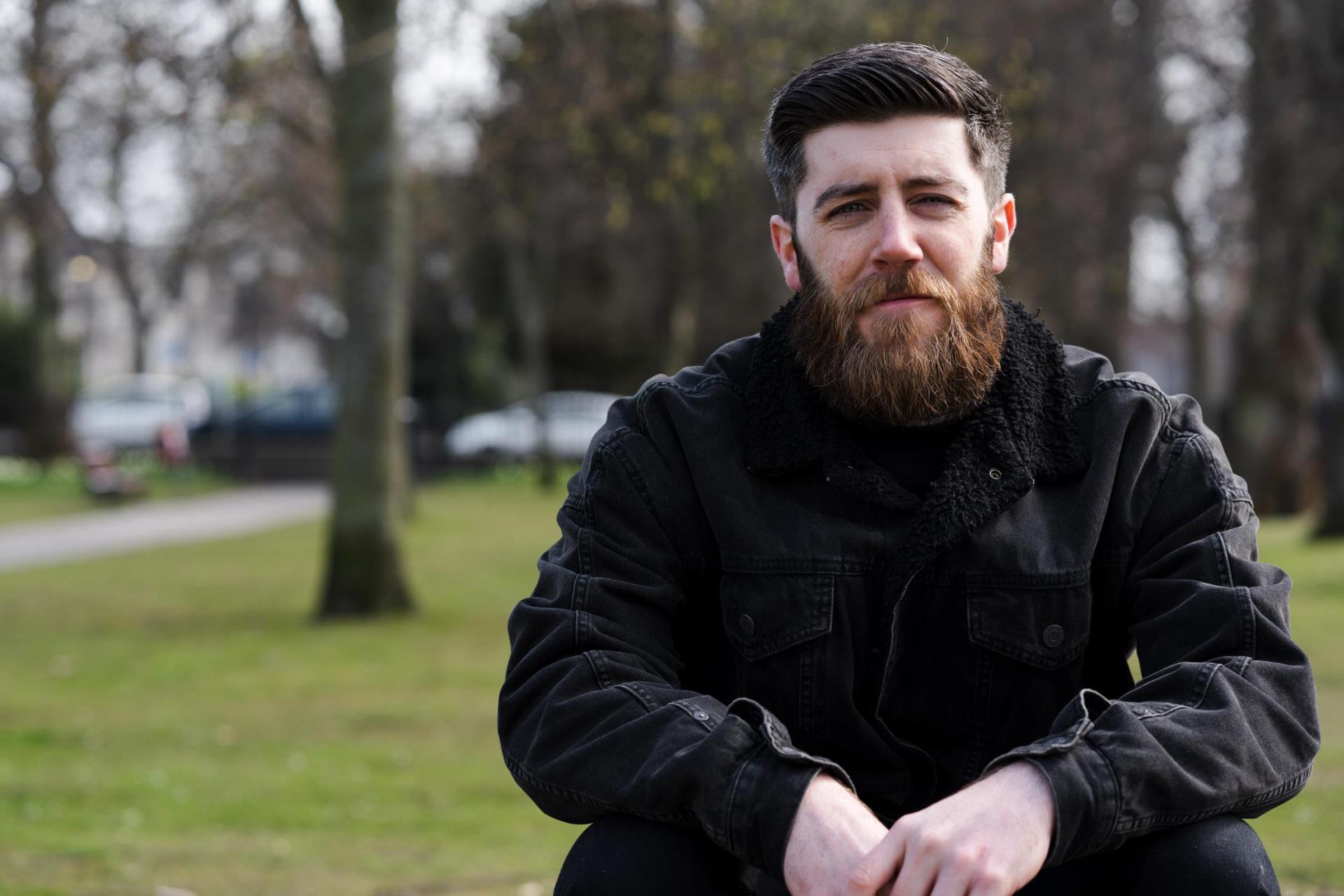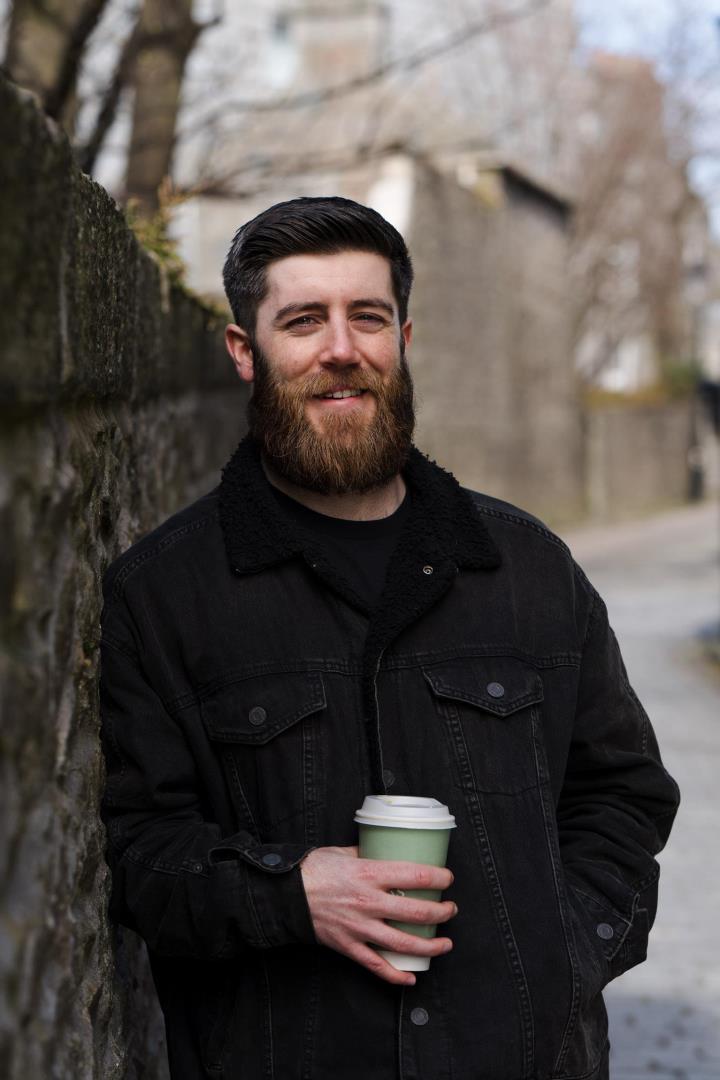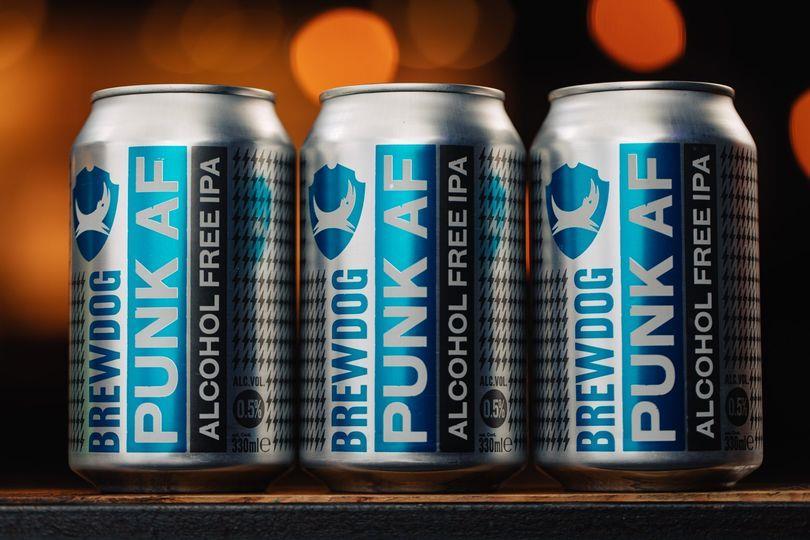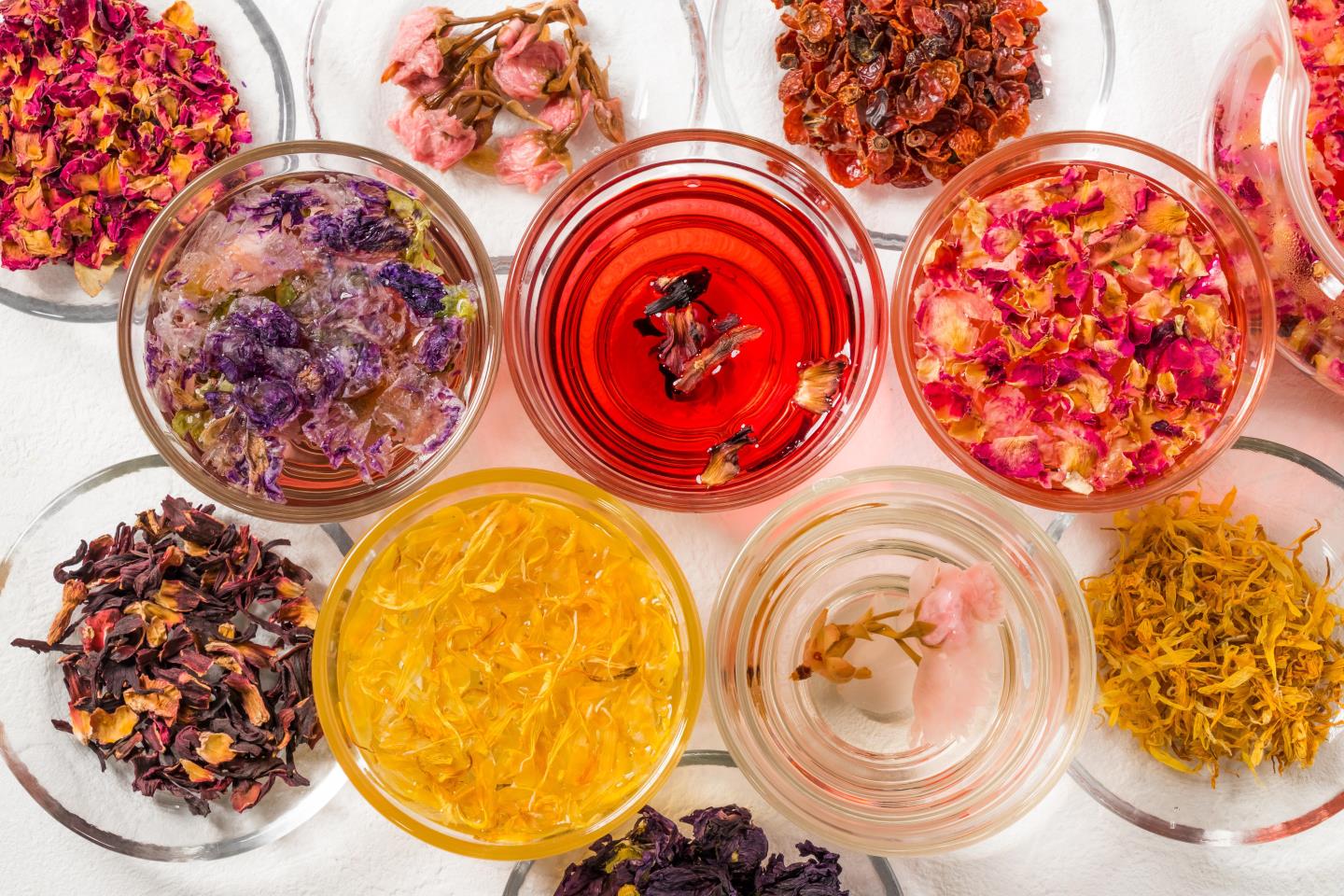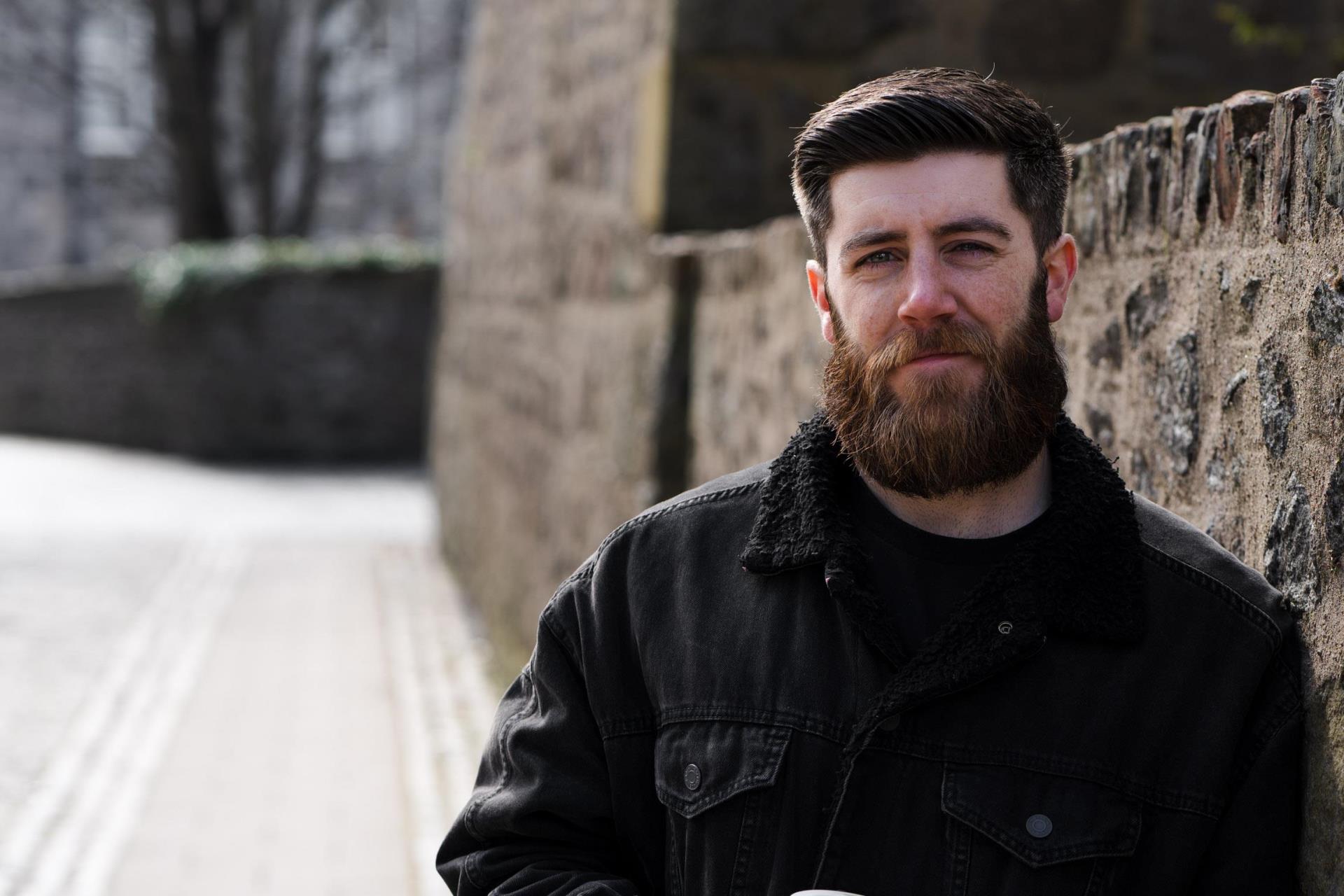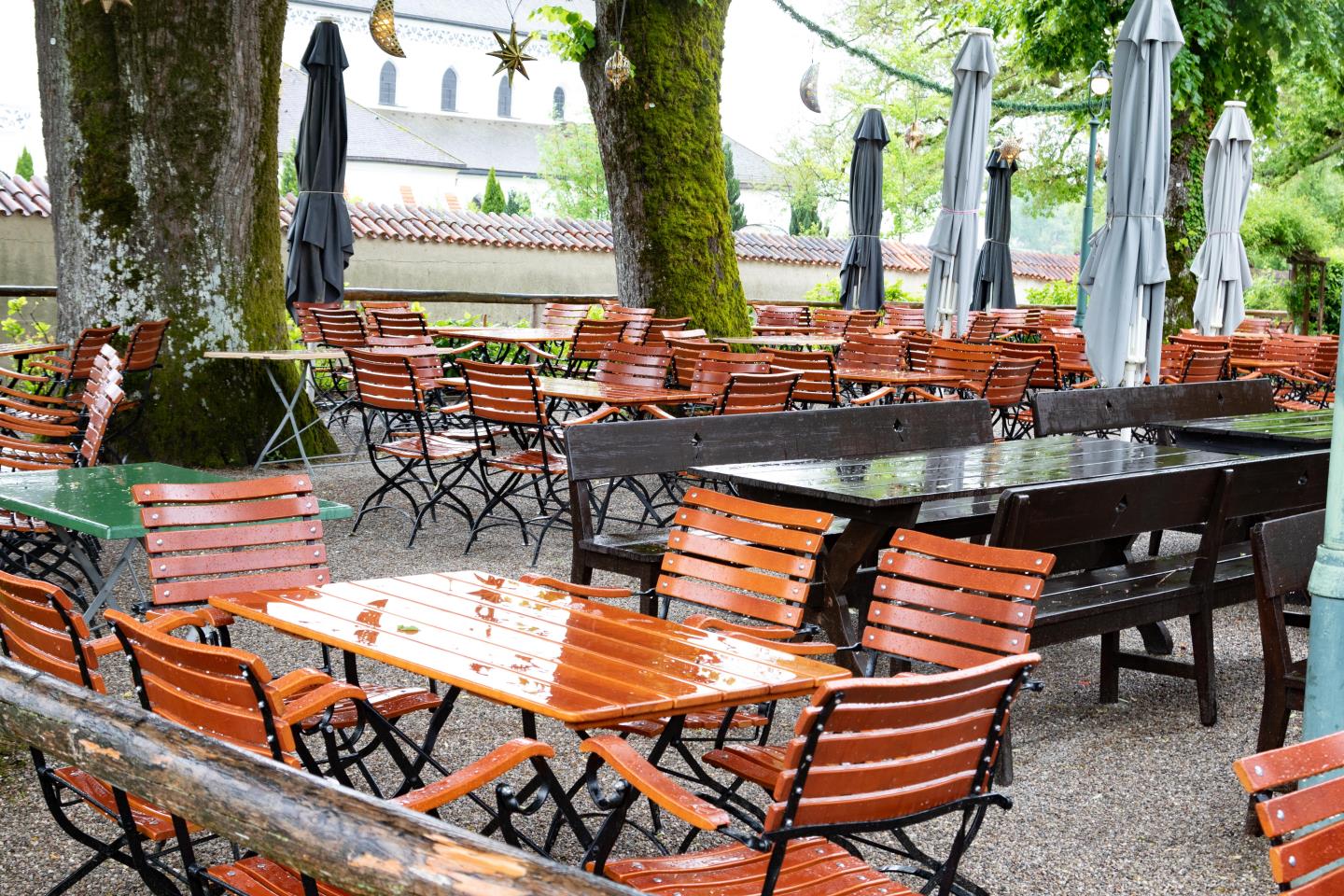In this second part of our story about Stuart Ritchie’s battle with alcohol, the north-east man reveals how seeking help was the best thing he ever did.
Following on from his raw and open account of what it was like to hit rock bottom with an alcohol problem, Peterhead local, Stuart Ritchie, who now lives in Aberdeen, shares his journey to sobriety.

An ongoing challenge, Stuart knows that getting sober and staying sober has been, and will be, a continuous work-in-progress and is determined to highlight his struggles to help others with who his story may resonate with.
While his experience of struggling with alcohol over the past six years will be all too familiar to some individuals, Stuart is living proof that seeking out help can in fact save a life, and is hopeful his story will spark conversations within families and friend groups to help those in need.
The aftermath
After reaching out to Alcoholics Anonymous‘ (AA) online messaging support channel for help and guidance after hitting rock bottom, Stuart knew he had to break this vicious cycle if he was to see another year.
He knew he had to immediately ditch the booze completely if he was to survive his suicidal thoughts which were brought on by his excessive drinking habit.
He said: “I bit the bullet and I knew I had to stop. I spoke with Alcoholics Anonymous for about a week. There were still face-to-face meetings being held at that time but I just didn’t feel comfortable going and opening up to people in person at that point. I found I opened up a lot easier over the messaging service online. I don’t know if that’s because of my age (31) and being brought up using instant messaging services but it is what I felt most comfortable with. They did try and get me to go to a few meetings and were really helpful. I’m glad I reached out to them.
“I spoke to an older gentleman in Aberdeen from AA who was a sponsor. I didn’t feel comfortable in a group situation at that time as I was really just trying to get away from anything to do with alcohol.
“That’s when I spoke to a few friends from elsewhere who had stopped drinking before because they knew it was a problem. They told me their stories and I shared mine. There were a lot of similarities in the sense of going and ruining everything around them.”
Sobriety journey
An ongoing challenge, Stuart knew going sober wasn’t going to be easy and was something people work on, in some cases, for the rest of their lives.
With him it was very black and white. He needed to completely eliminate alcohol from his life and while he didn’t tell anyone but his girlfriend initially, Stuart managed to stay on the right path.
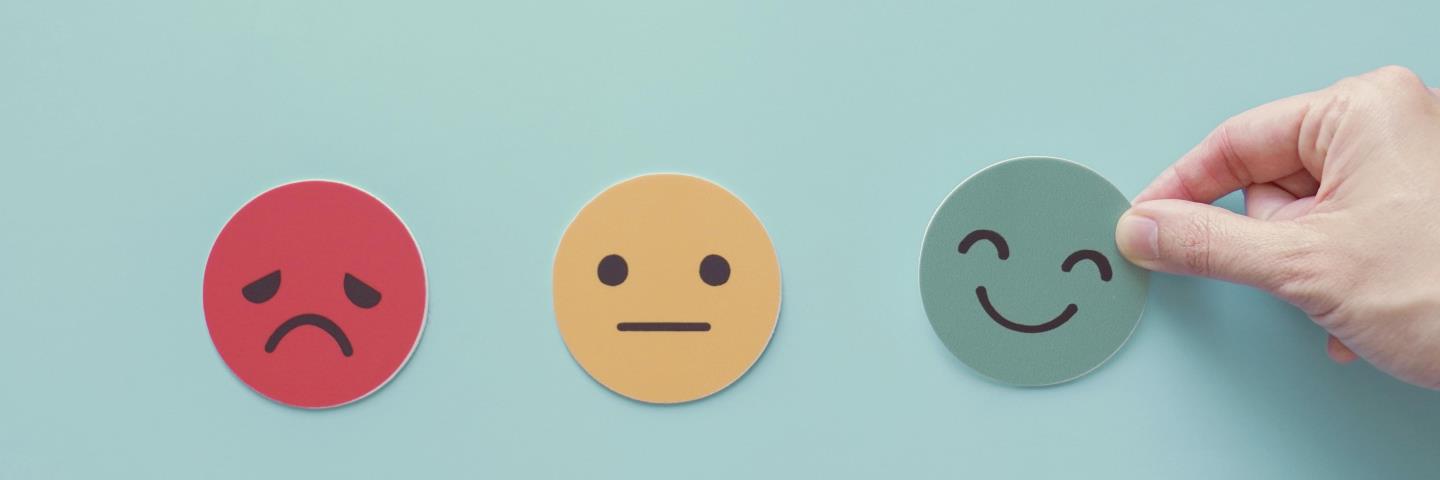
“It was tough to start with. Thankfully it isn’t as hard now as it was back then. I had that hard realisation – it was black or white for me. There were two paths in front of me and I knew which one I had to choose.
“After the first month or two, things just became a little easier. The lockdown which took place around Christmas time last year actually helped in a sense as there were no social events happening and no one was going out to bars.
“I think I would have found it harder if there were no lockdowns. I would have been able to go back out and be put in that situation again with more alcohol available. I think it helped not being around it all the time.
“It was a blessing and a curse being in lockdown. It was a curse because it is something completely alien to us all, putting everyone out of their comfort zones and keeping us from distant loved ones. But it was a blessing, too, because when I decided I was going to stop drinking alcohol, with a lot of my triggers being based around socialising and the fear of missing out, I think that helped a bit. I’d have been much more likely to start drinking again if these sorts of social events were still able to happen.
“My girlfriend knew what I was doing but I never really spoke to my parents or friends about it. I just didn’t think they’d understand why I was doing it. They all know me so well and I was scared they’d think I’d just go back to my old ways. I left a good bit of time from when I went sober to the point of telling then as I knew I’d never been that long without alcohol.
“Three or four months in my family had realised I wasn’t drinking alcohol at all and I’d never really opened up about why I had. It kind of came up every now and then and I just said I didn’t want to.
“I think I am better staying off it for good, but I know I feel so much happier without it. I think I’d fall into that spiral really quick if I did start drinking again. I know deep down I’d end up back to where I was much quicker. It took me 12 years to get to that point. It would probably take a couple of months the next time.”
“It’s OK not to drink”
Having built up a craving for the taste of beer, Stuart turned to alcohol-free versions of his favourites and also became more interested in flavoured teas during his sobriety journey.
He had still not told many people about his struggles with alcohol and wanted to share his experience to encourage anyone out there struggling with the same battles he had faced, so he did so on Facebook, opening up about his experience to friends and family.
“When I came out about it on social media, it was probably a shock to some people as I was always that person out drinking with everyone. I was such a social person. I don’t think that will change as I’d happily go back out now, but at least I don’t need to lie why I’m not drinking or downplay it anymore.
“Some people when you are out will say ‘Oh just have one’ to those people who aren’t drinking, but I think now I’ve shown why I have stopped drinking, my friends know not to do that. You wouldn’t want to say that to someone trying to stop for these reasons.
“If someone doesn’t want to drink it is more than OK. There’s probably a reason they don’t want to. I got to that low point and knew I had to stop. Everyone’s situation is different.
“Overcoming the habit of having a drink after work has been the biggest thing for me. I turned to alcohol-free beers. I felt like the taste would trigger something in my head and dull any cravings. The taste alone made the want for more alcohol go away and I have fulfilled that craving with the alcohol-free version now.
It took me 12 years to get to that point. It would probably take a couple of months the next time.
“I have them (alcohol-free beers) a few times a week – I feel like there’s no harm in having them as there’s no alcohol in them. I missed the taste of beer, but there’s some really tasty ones out there now.
“I also had an obsession with herbal teas when I came off of drinking initially. There’s such a variety and I would drink different flavours all the time. I did this because I would always want alcohol later at night, so turned to different flavoured teas to relax me later in the evening. I focused more on my fitness harder as well as my drinking had always impacted it. Now I wasn’t drinking there was nothing stopping me or holding me back from going for a morning run.”
Speaking out
Stuart says talking about his downfall and his recovery has really helped him progress to where he is now. By opening up to family, friends and now even talking with strangers online, he says, while it is difficult, sharing how you are feeling is incredibly important.
With the coronavirus pandemic lockdowns affecting so many people in different ways, Stuart outlines how everyone needs to be checking in with their loved ones to ensure they are OK and offer them the space to open up if needed.
“Just speaking to someone and opening up to either a stranger or someone you know is really helpful. I think people speaking out and people realising they aren’t alone is a massive help. I think if people are opening up and speaking about it, pointing them in the right direction of help and supporting them is so important,” said Stuart.
“It hits you when you realise someone you know is struggling or has struggled with this sort of thing. I felt like opening up and posting on social media helped me share with others what I have been through. Maybe it has helped someone or has encouraged more people to check in on their friends more.
“Some people may pan off help initially or they might not be ready to address anything. If you think there might be something wrong then just keep checking in and support them in every way you can. Be there for them and be by their side when they do open up.
There were two paths in front of me and I knew which one I had to choose.”
“I watched Our Silent Emergency with Roman Kemp on BBC and the main message behind that was asking people if they are OK twice. Ask them, and then ask again. ‘Are you actually OK?’ is usually enough to get people to open up a bit more.
“Because there was such a strong link between my drinking and my mental health, I just knew if I opened up and shared my story it might help some other people out there. I’m by no means out of the woods, but please reach out if you need help.”
More needs to be done in the industry
Having worked in hospitality for 12 years, half of which Stuart battled with his drinking habits, the former bartender and bar manager turned personal trainer said more needs to be done to support those working in the industry.
With late nights, busy shift work, long hours and being surrounded by alcohol, Stuart outlines that support for staff’s wellbeing needs to be prioritised.
Hospitality has just reopened for the first time in four months, with some workers going back to work for the first time in more than a year. While the excitement of reopening is very much at the forefront, there are others in the workforce who will be anxious about the occasion.
He added: “I know the industry isn’t responsible for what happened to me, but I do think more support needs to be in place to help people in my situation. I’d like to work on something to help.
“I don’t ever really remember hearing from any of the big brands about there being anything hospitality workers can view regarding mental health. It may be somewhere, but it was never really made clear to me.
“I think it is a tough thing to crack to be honest. Working in hospitality and bars is good fun and you can have a really successful career in the drinks industry and hospitality in general, but there are a lot of holes you can fall into if you’re not careful.
“I think if we can do more to help address issues like this for anyone working in the industry, hopefully more people will be open to speaking about their issues and problems.”
For anyone who needs help, support or advice or knows someone who may, please contact the below mental health charities or seek guidance from your GP/doctors.
You can also call NHS24 on 111 or Alcoholics Anonymous on 0800 9177650.
- Alcoholic Anonymous
- Mental Health Aberdeen
- SAMH – My Life Dynamic
- Pillar Kincardine
- Penumbra
- Samaritans
- NHS Inform
- Man Chat
- Hospitality Health
